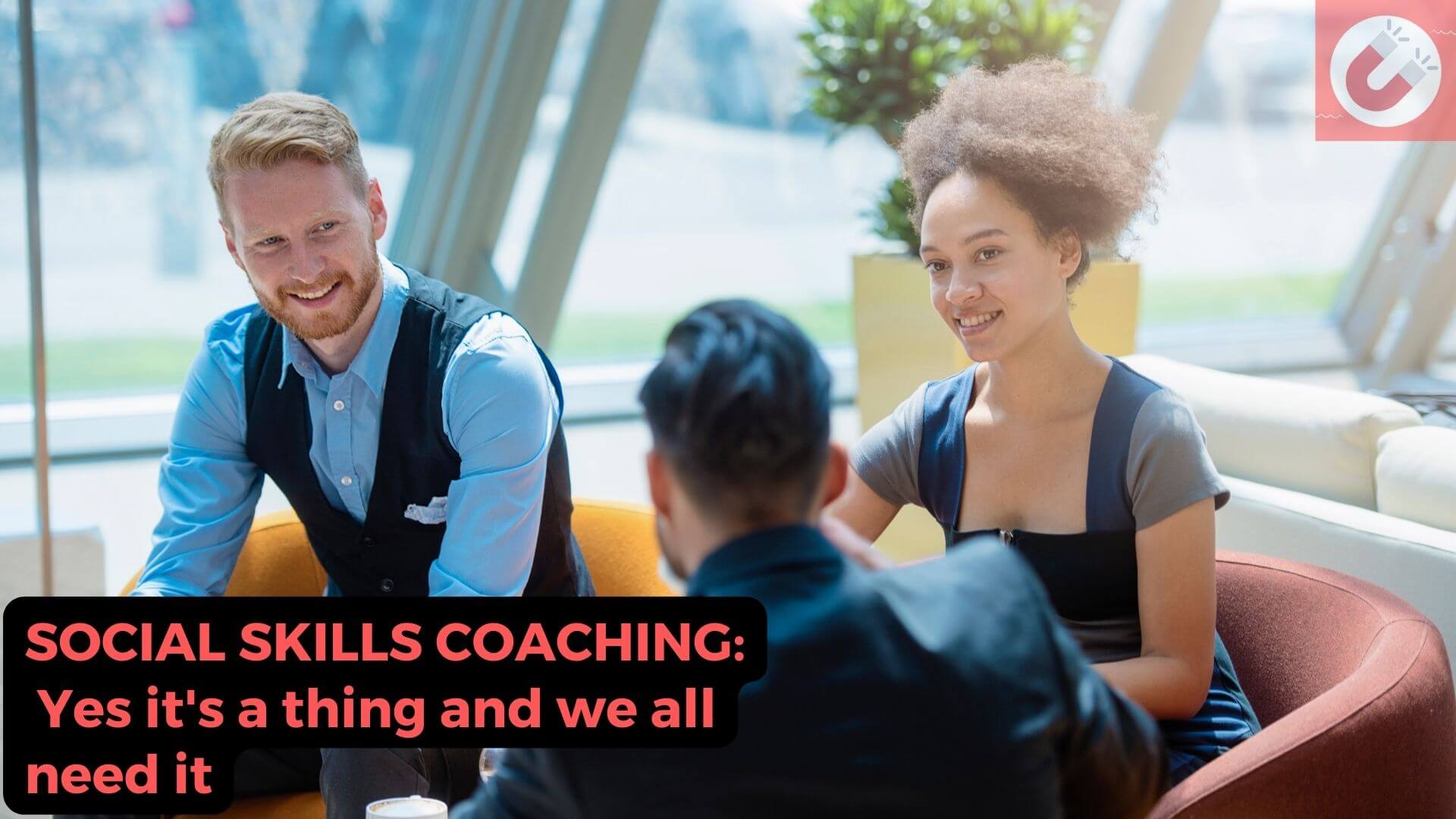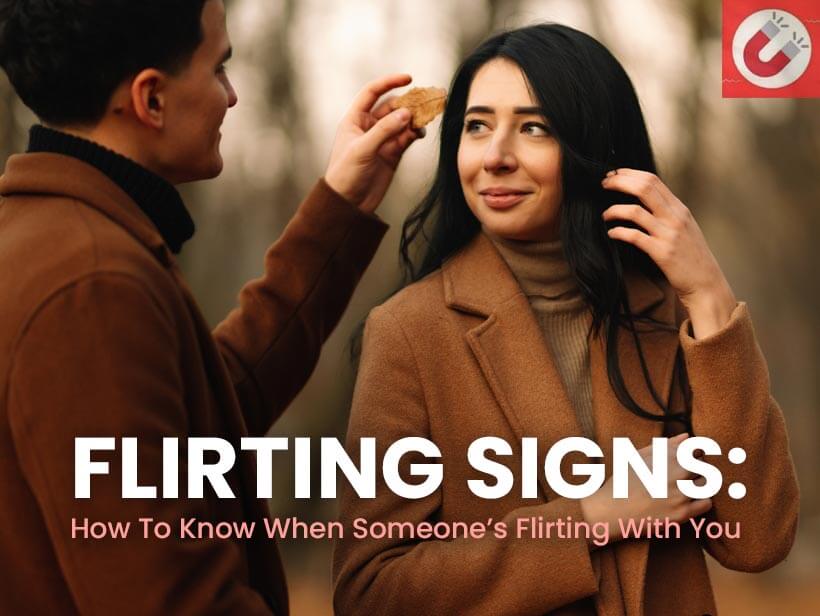Social skills coaching can help bridge the gap between our online and in-person interactions, enhancing our ability to read the room, communicate more effectively, and approach any situation with confidence.
The goal of social coaching is to give people the tools they need to improve interpersonal skills using techniques like role-playing, shaping, and modeling, providing feedback and reinforcing positive behaviors throughout the process.
What Is Social Skills Coaching?
Social skills coaching helps people become more confident and effective in social situations, especially if they struggle with social anxiety or challenges in interacting with others.
Social skills coaches work with people to identify areas where they may be struggling or could use improvement, and provide guidance, feedback, and strategies to help them become more effective communicators.
Social skills coaching may focus on a wide range of skills, such as active listening, conflict resolution, public speaking, improving networking skills, and building relationships. The goal of social skills coaching is to build more positive and fulfilling social interactions in both personal and professional contexts.
Enhancing Communication & Interpersonal Skills
Social skills coaches focus on improving clients’ overall communication skills.
- Starting and maintaining conversations with ease.
- Active listening skills to better understand others.
- Networking skills to build and sustain professional connections.
- Communicating complex ideas clearly and effectively.
Addressing Social Anxiety & Confidence Issues
Coaches help clients manage social anxiety and build confidence.
- Identifying and challenging limiting beliefs that hinder social interactions.
- Developing positive body language and voice tone to convey confidence.
- Learning to rebound from awkward moments and continue social interactions smoothly.
- Not overthinking social situations, allowing for more natural engagement.
Customizing the Coaching Process
Social skills coaching is highly personalized to meet the unique needs of each client.
- Adapt their methods to align with the client’s comfort level and goals.
- Provide ongoing feedback and support to encourage consistent progress.
- Help clients set realistic social goals and create actionable plans to achieve them.
When Should You Hire A Social Skills Coach?
Social skills coaching is a valuable investment for anyone seeking to improve their social skills and relationships.
“Sometimes you just have to break somebody’s robotic routine and give them a special experience, that’s become rarer in the digital age. A conversation with a stranger.”
– Miguel Soria, Jaunty Student Success Story
Consider hiring a social skills coach if you struggle with communication, relationships, social anxiety, making friends, or frequently participating in unenjoyable social activities due to pressure. A coach can help you overcome these challenges and improve your social life.
1. Difficulty in making and maintaining connections
If you struggle to make new friends or maintain existing relationships, a social skills coach can help you improve your communication and interpersonal skills.
2. Social anxiety
If you feel overly anxious in social situations, a coach can help you manage your social fears and anxiety and develop the confidence to navigate various social settings. A social skills coach can teach you techniques to manage your anxiety, be more approachable, develop assertiveness, engage in effective conversations, and build a circle of friends.
3. Trouble with non-verbal communication
If you have difficulty reading or responding to body language, facial expressions, or tone of voice, a coach can help you improve your non-verbal communication skills.
4. Conflicts and misunderstandings
If you frequently find yourself unsure of how to say no, or constantly getting involved in in conflicts or misunderstandings with others, a social skills coach can help you learn effective conflict resolution and communication strategies.
5. Career stagnation or setbacks
If you feel your career is being held back due to poor networking, communication, or interpersonal skills, a coach can help you develop those skills and advance professionally.
6. Feeling shy, isolated, or lonely
If you feel disconnected from others and struggle to overcome shyness and form meaningful relationships, a social skills coach can help you create deeper connections and build a supportive social circle.
7. Specific career, love life, or social goals
Suppose you have specific social skill goals, such as improving your public speaking, learning how to flirt, or overcoming hesitation around networking. In that case, a social skills coach can provide targeted guidance and practice to help you achieve those goals.
8. Seeking personal growth
If you’re committed to personal growth and self-improvement, working with a social skills coach can effectively enhance your communication and interpersonal abilities, leading to more fulfilling relationships and a higher quality of life.
9. Difficulty adapting to new people and situations
If you find it challenging to adapt to new social environments, such as moving to a new city or starting a new job, a coach can help you develop the skills needed to navigate these changes with confidence.
10. Feedback from others that you could use some help
If you’ve received feedback from friends, family, or colleagues that your social skills could use improvement, consider working with a social skills coach to address those areas.
11. Feeling like something is “holding you back”
If you feel that your social skills are holding you back in any aspect of your life or want to enhance your abilities, working with a social skills coach can be an invaluable investment in your personal and professional success.
Which Skills Can A Social Coach Help You Improve?
A social skills coach can help you with a wide range of social skills, such as:
| 1. Active listening | Learning to listen attentively and respond appropriately to others. |
| 2. Assertiveness | Learning to express your needs, wants, and opinions in a clear and confident manner. |
| 3. Conversation skills | Learning to start, maintain, and end conversations effectively. |
| 4. Nonverbal communication | Learning to read and use body language, facial expressions, and tone of voice to convey messages. |
| 5. Conflict resolution | Learning to manage conflicts and disagreements constructively. |
| 6. Public speaking | Learning to prepare and deliver effective presentations or speeches. |
| 7. Networking | Learning to connect with others and build professional relationships. |
| 8. Social etiquette | Learning to navigate social situations and understand social norms and expectations. |
| 9. Flirting skills | Learning to express romantic interest in a playful, confident, and respectful manner. |
| 10. Managing anxiety | Learning to manage nervousness or anxiety in social situations. |
| 11. Boundaries | Learning to set and communicate healthy boundaries with people in your life. |
How Can Social Skills Training With A Coach Help Adults?
1. Coaching can help people with autism to better understand and communicate with others
Autism is a neurological disorder that affects social interaction, communication, and social behavior. People with autism often have difficulty understanding and responding to nonverbal cues, such as body language and facial expressions. They may also have trouble making eye contact and engaging in small talk. As a result, people with autism can often benefit from coaching. A coach can help teach social skills and provide guidance on how to initiate and maintain conversations.
They can also offer advice on how to interpret and respond to the body language and sense of humor of others. In addition, a coach can help people with autism to understand and manage their emotions. As a result, coaching can be an invaluable tool for helping people with autism to interact more effectively with the world around them.
Jaunty is proud of the success we have had with our ASD community members.
2. A social skills coach can help adults with social anxiety feel more comfortable in social situations
For many people, social anxiety can be a debilitating condition that prevents them from enjoying the fullness of life. Everyday social activities like going to work, shopping for groceries, or making eye contact can become stressful ordeals.
Social situations that are supposed to be enjoyable, like flirting at a party, or attending big family gatherings, can be fraught with anxiety when you feel like you have no social skills. With the help of a coach, people with anxiety can learn to manage their symptoms in social settings and enjoy a fuller, richer life.
Let’s face it, we live much of our social and work lives online in a virtual reality. The ability to fully be present and enjoy those in-person moments with other people is game-changing in your quality of life.
3. Working with a social skills training coach can benefit people of all ages, from children to adults, and keep you accountable
A coach will keep you accountable with action steps and support you to make real changes in your social life. Coaching provides a space to practice each specific skill you want to work on with immediate feedback. A good coach will keep you on track with check-ins, setting social goals, and tracking your progress.
The most important message we can send out is that improving social confidence is possible at any point in your life. It is never too late to learn or brush up on these important skills.
4. Coaching can help people learn how to make friends, build relationships, and more
Building and maintaining friendships is an important part of life, but it can be difficult to know how to go about it. That’s where coaching comes in. A coach can help you learn the skills you need to make friends and build social relationships. They can teach you how to start a conversation, how to listen effectively, and how to handle conflict. A social skills coach can also help you identify the qualities that are important to you in a social circle and find people who share those qualities. If you’re struggling to make friends or build meaningful relationships, coaching could be the answer.
How Long Does It Take To Gain Social Skills With A Social Skills Coach?
Social skills coaches will typically tailor their approach to the individual, so the length of time it takes to see results will depend on what’s necessary for success. The important thing is to be patient and consistent with the coaching process. Some people may see results after a few sessions, while others may need more time.
Can You Improve Social Skills Later In Life?
Absolutely! While it’s true that social skills are often learned in childhood, it’s never too late to learn or take action steps to improve them. Social coaching can be beneficial for people of all ages.
How Can Coaching Help Improve Social Skills?
Coaching helps people learn how to communicate effectively and build relationships.
- You can work on developing social skills individually with a coach or as part of a group class, both online and in-person.
- Coaches use various methods to help their clients improve people skills, including role-playing, positive reinforcement, and feedback.
- People who have had coaching tend to see positive career changes, healthier relationships, and higher self-esteem.
- Social coaching can help people with a variety of issues, including shyness, autism spectrum disorder, and ADHD.
- It’s never too late to learn social skills, and coaching is beneficial for people of all ages.
The benefits of learning social skills are life-changing
Whether you’re a shy introvert or a social butterfly, everyone can benefit from social coaching. Good social skills are like problem solving skills that are incredibly useful for everything from making friends to getting jobs, and yet many of us never receive any formal instruction on how to interact with others. This is where coaching comes in.
A professional social skills coach can help you learn everything from how long to hold eye contact to how to build rapport with anyone – and all essential skills for success in personal and professional relationships.
“What Jaunty has done is provide a place where people can safely practice conversational skills without the fear of rejection. Since I started a couple weeks ago, when going out, I’ve talked to strangers, especially girls, I would usually shell up around, and even got a phone number. At a bonfire, I was able to start the conversation and keep it going among a group of people in which I only knew the host. And with people I already know, I’ve been able to keep the conversation going whereas before Jaunty I would run out of things to say and sometimes cut the conversation short. This is life-changing.”
Jonathan Tostado, Jaunty success story
Social skills coaching can benefit people of all ages and backgrounds, from those with social anxiety to those with autism. The sooner someone begins receiving coaching, the sooner they start reaching their social goals.
For more examples of social success through coaching, check out some Jaunty Gym group members’ testimonials.



